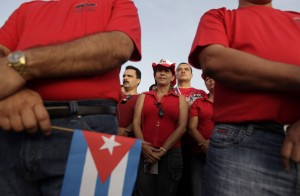
The White House said on Friday that the President has directed that changes be made to regulations and policies governing travel and cash sent to Cuba.
“The President believes these actions, combined with the continuation of the embargo, are important steps in reaching the widely shared goal of a Cuba that respects the basic rights of all its citizens,” read a statement from the White House.
The changes involve easing traveling restrictions and restoring the amount of money that can be sent to non-family members to the levels it was at during previous administrations, which was $2000.
“These measures will increase people-to-people contact; support civil society in Cuba; enhance the free flow of information to, from, and among the Cuban people; and help promote their independence from Cuban authorities,” further read the statemet.
Under the changes, travelers may have a choice in airport other than Miami from which to travel from to visit relatives. US Rep. Kathy Castor (D) expressed her optimism with the announcement suggesting the Tampa airport may soon serve as a point of departure to the island if it secures authorization.
“The Tampa Bay region has one of the highest Cuban-American populations in this country, but for too long, families have had to travel to Miami in order to get to Cuba,” Castor, who had previously sent a letter to Obama before he took office over the issue, said.
Although the changes do not lift the economic embargo and tourist travel to Cuba remains illegal, religious institutions in the U.S. will be able to sponsor trips to Cuba by their members with a general license. It will also remain illegal to send money to senior government or Communist party officials.
The changes are expected to be swiftly implemented as they do not require congressional approval and will be published in the Federal Register.
“These steps build upon the President’s April 2009 actions to help reunite divided Cuban families; to facilitate greater telecommunications with the Cuban people; and to increase humanitarian flows to Cuba.”

Recent Comments